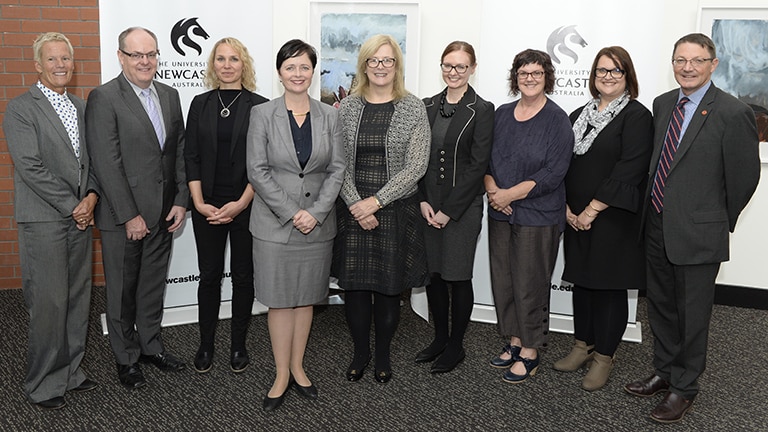
Public health researchers will receive $25,000 from the NSW Government to help older people choose suitable housing arrangements.

At a time when housing affordability and availability are becoming increasingly contentious, University of Newcastle public health researchers will receive $25,000 from the NSW Government to help older people choose suitable living arrangements.
The funds will enable the team based at the Hunter Medical Research Institute to develop an easy-to-use housing decision checklist, helping seniors identify housing features that foster better health and wellbeing, while also maintaining greater community connections.
“Assisting older people to live in a home that caters for their needs means they can remain active and maintain important links to their families and communities,” NSW Minister for Ageing Tanya Davies announced during a visit to Newcastle with Parliamentary Secretary for the Central Coast and the Hunter, Scot MacDonald.
“The checklist will be piloted and evaluated with older people living in the Newcastle area.”
The grant is part of the NSW Government’s Liveable Communities Grants program, which will provide $4 million over four years for innovative, locally driven projects that make communities more inclusive for older people.
“Liveable communities enable everyone, regardless of age or ability, to lead active, independent, healthy lives and access their community freely and safely,” Mr MacDonald added.
Dr Meredith Tavener, Professor Julie Byles and Dr Catherine Chojenta will build on preliminary work conducted by the Research Centre for Generational Health and Ageing to create a framework for housing to help people live more active and healthy lives as they age.
Dr Tavener is excited about the potential of this project to help improve older people’s physical and mental wellbeing by ensuring they live in affordable and accessible housing.
“In general, older people may not wish to move, however, their housing needs change as they age,” Dr Tavener explains.“Enabling people to stay in their own homes helps create a positive ageing experience, with people able to live in their communities and stay out of health and residential facilities for as long as possible.”
By including input from focus groups such as real estate agents and local council along with older people in the community, the team is anticipating that the project will help older adults assess their housing needs by helping them recognise key housing features that can provide a supportive living environment.
HMRI would like to acknowledge the Traditional Custodians of the land on which we work and live, the Awabakal and Worimi peoples, and pay our respects to Elders past and present. We recognise and respect their cultural heritage and beliefs and their continued connection to their land.

Hunter Medical Research Institute
We’re taking healthy further.
Locked Bag 1000
New Lambton
NSW, Australia, 2305



This site is protected by reCAPTCHA and the Google Privacy Policy and Terms of Service apply.
Copyright © 2024 Hunter Medical Research Institute | ABN: 27 081 436 919
Site by Marlin Communications
